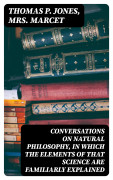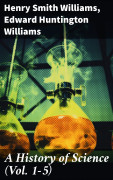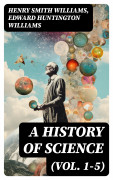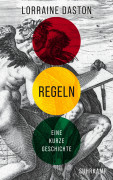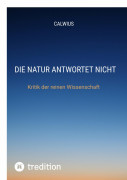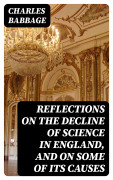Thomas P. Jones, Mrs. Marcet: Conversations on Natural Philosophy, in which the Elements of that Science are Familiarly Explained

| Produkttyp: | eBook-Download |
|---|---|
| Verlag: | Good Press |
| Erschienen: | |
| Sprache: | Englisch |
| Seiten: | 968 (Druckfassung) |
| Format: | EPUB
Info▼
|
| Download: | 1,5 MB |
Conversations on Natural Philosophy, in which the Elements of that Science are Familiarly Explained, offers a rich tapestry of discussions designed to demystify the complex concepts of natural philosophy for the lay reader. This groundbreaking anthology stands out for its unique approach, blending an accessible narrative style with rigorous scientific exploration. The collection not only covers a broad spectrum of topics within the realm of natural philosophy but does so through a conversational methodology that was innovative at the time of publication. This strategy, combined with the diversity of subjectsfrom the principles of gravity to the behavior of light and heatunderscores the anthology's significance in making scientific ideas accessible to the public. The authors, Thomas P. Jones and Mrs. Marcet, were pivotal figures in popularizing science during their time. Jones, known for his eloquent lectures and publications, and Marcet, celebrated for her successful works aimed at educating women and children in the sciences, bring a rich diversity of perspectives to the anthology. Their collaboration is emblematic of an era that sought to democratize knowledge and reflects the broader educational and cultural movements of the early nineteenth century. Their collective efforts provide a window into historical approaches to scientific education, promoting a dialogue between expert and novice. This anthology is indispensable for anyone interested in the history of science education or in natural philosophy more broadly. It offers readers a unique opportunity to engage with scientific concepts through a historical and dialogical lens, making complex ideas both understandable and intriguing. The anthology accomplishes a rare feat: it not only educates but also captivates, inviting readers into a world where science is made accessible and fascinating. For educators, historians, and curious minds alike, this collection is a valuable resource for understanding how the narrative and dialogue can bridge the gap between complex scientific theories and public understanding.
